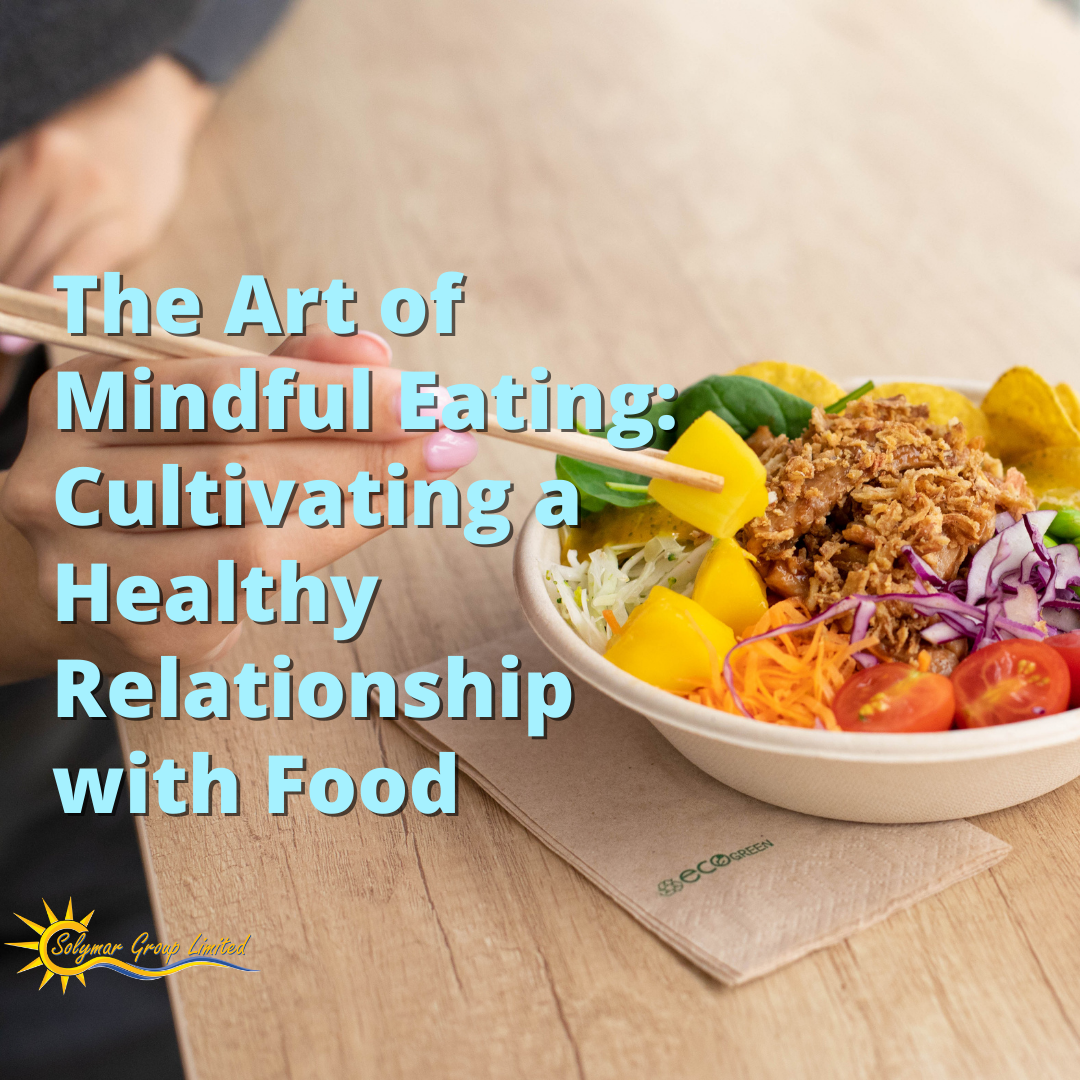 In today's fast-paced world, where distractions abound and convenience often takes precedence, it's easy to lose touch with our eating habits. Mindless snacking, emotional eating, and rushed meals have become the norm for many. However, there is an alternative approach that can help us develop a healthier relationship with food - mindful eating. Mindful eating is about paying attention to the present moment, cultivating awareness, and savoring the entire experience of eating. In this article, we will explore the art of mindful eating, its benefits, and practical tips to incorporate mindfulness into your eating habits.
In today's fast-paced world, where distractions abound and convenience often takes precedence, it's easy to lose touch with our eating habits. Mindless snacking, emotional eating, and rushed meals have become the norm for many. However, there is an alternative approach that can help us develop a healthier relationship with food - mindful eating. Mindful eating is about paying attention to the present moment, cultivating awareness, and savoring the entire experience of eating. In this article, we will explore the art of mindful eating, its benefits, and practical tips to incorporate mindfulness into your eating habits.
Understanding Mindful Eating: Mindful eating is a practice that combines the principles of mindfulness and nutrition. It involves being fully present and engaged in the act of eating, paying attention to the sensory experience, and observing thoughts and emotions that arise during the process. Rather than focusing solely on what we eat, mindful eating emphasizes how we eat.
Benefits of Mindful Eating:
-
Increased Awareness: Mindful eating enhances our awareness of physical hunger and satiety cues, helping us make more conscious choices about when, what, and how much to eat. This awareness can prevent overeating and promote healthier portion sizes.
-
Improved Digestion: By slowing down and thoroughly chewing our food, we aid the digestive process and enhance nutrient absorption.
-
Enhanced Satisfaction: Mindful eating allows us to fully savor the flavors, textures, and aromas of our food, leading to a greater sense of satisfaction and enjoyment.
-
Emotional Regulation: Mindful eating helps us recognize emotional triggers and distinguish between physical and emotional hunger. It encourages non-judgmental acceptance of our feelings, reducing the likelihood of turning to food as a coping mechanism.
-
Weight Management: Studies have shown that mindful eating can support weight loss efforts by promoting healthier food choices and reducing mindless eating habits.
Practical Tips for Mindful Eating:
-
Engage Your Senses: Before taking the first bite, take a moment to appreciate the colors, textures, and smells of your food. Notice the intricate details and engage all your senses to fully immerse yourself in the experience.
-
Slow Down: Eat at a relaxed pace, savoring each bite. Put your fork down between bites and chew slowly and thoroughly. This allows you to better taste and appreciate the flavors while giving your body time to signal fullness.
-
Eliminate Distractions: Minimize external distractions such as television, smartphones, or working while eating. Create a calm and peaceful environment that allows you to focus solely on your meal.
-
Practice Gratitude: Express gratitude for the food on your plate, acknowledging the effort that went into producing it. Cultivating gratitude can shift your perspective and deepen your connection with your meals.
-
Listen to Your Body: Tune in to your body's hunger and fullness signals. Eat when you're physically hungry and stop when you're comfortably full. Learn to differentiate between physical and emotional hunger cues.
-
Non-Judgmental Observation: Notice any thoughts or emotions that arise while eating, without judging or labeling them as good or bad. Observe them with curiosity and let them pass without getting attached or reacting to them.
Incorporating Mindful Eating into Daily Life:
-
Start with One Meal: Begin by practicing mindful eating during one meal or snack each day. As you become more comfortable, gradually expand the practice to other meals.
-
Mindful Food Choices: Pay attention to the quality and nutritional value of the food you consume. Choose whole, unprocessed foods that nourish your body and provide essential nutrients. Be mindful of portion sizes and opt for balanced meals that include a variety of fruits, vegetables, lean proteins, and healthy fats.
-
Mindful Meal Preparation: Engage in mindful meal preparation by focusing on the process of cooking. Take your time to chop vegetables, measure ingredients, and appreciate the smells and textures of the food you're preparing. This can foster a sense of connection and anticipation for the meal ahead.
-
Practice Mindful Snacking: Apply mindfulness to your snacking habits as well. Before reaching for a snack, pause and ask yourself if you're truly hungry or if you're eating out of boredom or stress. Choose nutrient-dense snacks and savor each bite, paying attention to the flavors and textures.
-
Eat Mindfully in Social Settings: When dining with others, remain present and engaged in the conversation while also being mindful of your eating. Take small breaks between bites to participate in the conversation fully. Avoid mindlessly following the pace of others and focus on your own hunger and fullness cues.
-
Cultivate Mindful Habits: Beyond mealtimes, you can incorporate mindfulness into your overall relationship with food. This includes mindful grocery shopping, where you take time to select fresh, nourishing ingredients and read labels mindfully. Additionally, practicing gratitude before and after meals can help you appreciate the journey of food from farm to plate.
-
Seek Support and Guidance: If you're struggling to develop a healthy relationship with food or finding it challenging to incorporate mindful eating into your daily life, consider seeking support. Nutritionists, dietitians, or therapists specializing in mindful eating can provide guidance, tools, and strategies tailored to your specific needs.
The art of mindful eating invites us to slow down, savor each bite, and cultivate a deeper connection with our food. By practicing mindfulness during meals, we can transform our relationship with food, enhance our overall well-being, and make more conscious choices. Mindful eating empowers us to listen to our bodies, appreciate the nourishment we receive, and create a healthier and more fulfilling relationship with food. Embrace the practice of mindful eating, and embark on a journey towards a balanced and nourishing way of life.
#mindfuleating #healthyrelationshipwithfood #mindfulness #awareness #nutrition #gratitude #mindfulhabits #balance #mentalhealth #mentalhealthcoaching #nutritionalcoaching #womenshealth






